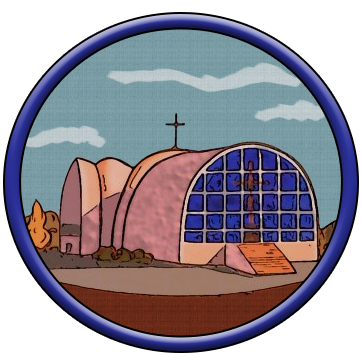Prayer and the Power of Prayer
![]()
What is prayer? Prayer is the raising of the mind and heart to God in praise and thanksgiving to Him and in supplication for the good things that we need, both spiritual and physical. Among works done for the love of Christ, prayer more than anything else, brings us the grace of the Holy Spirit, because it is always at hand.
Why should we pray at all?
Among works done for the love of Christ, prayer more than anything else, brings us the grace of the Holy Spirit, because it is always at hand.
We know that God doesn’t need our prayers… but He loves us and wants us to be happy. He wants to have a loving relationship with us now and always. Prayer is a way to help us get in touch with God, to develop a relationship with him. In prayer we not only talk with God, but God communicates with us. As we continue to pray, our relationship with God grows, and we are transformed by God’s grace to resemble the people we are meant to be.
Prayer should be our continual endeavor as Catholic Christians. From the moment of waking, to the time of sleeping, we should strive not to let prayer leave our hearts. Whether we are in Church, at home, at work, traveling, or at leisure, prayer constitutes our most intimate union with God. To walk with God’s presence felt continually in one’s heart, is to walk with unceasing prayer. Even while we sleep, God in His mercy is able to grant us prayer.
Every good deed done for Christ’s sake gives us the grace of the Holy Spirit, but prayer gives us it most of all, for it is always at hand, so to speak, as an instrument for acquiring the grace of the Spirit. For instance, you would like to go to Church, but there is no Church or the Service is over; you would like to give alms to a beggar, but there isn’t one, or you have nothing to give; you would like to do some other good deed for Christ’s sake, but either you have not the strength or the opportunity is lacking. This certainly does not apply to prayer. Prayer is always possible for everyone, rich and poor, noble and humble, strong and weak, healthy and sick, righteous and sinful.
In Eastern Christian tradition, all prayers, both public and private are said facing the East, “for as lightning that comes from the east and shines as far as the west, so will be the coming of the Son of Man” (Matthew 24:27). Thus churches are usually built with the apse pointing East, towards the rising sun, symbolic of Jesus Christ, the Sun of Justice. In church the priest, deacon, and people worship standing upright, facing this direction, awaiting the One who will lead them to the heavenly Promised Land, the New Jerusalem. In their homes, therefore, Eastern Christians customarily pray standing up, facing the East.
Early Christians, reasoning that man, the only animal that walks erect and is created in the image and likeness of God, should pray standing to exemplify his dignity as a Child of God. Kneeling was done only as a sign of repentance for sin. In addition, early Church councils forbade kneeling on Sunday, commanding the faithful to stand as a testimony to their belief in Christ’s Resurrection.
![]()
Remembering that the light of Christ banishes the darkness of the world and that we as Christians are to shine with that light, we often light a candle as we say our prayers, the candle continuing to burn as our prayers ascend to God.
Excerpted and adapted with permission from: St. Seraphim’s Conversation Other Source: Catholic Online: Why Pray the Rosary
